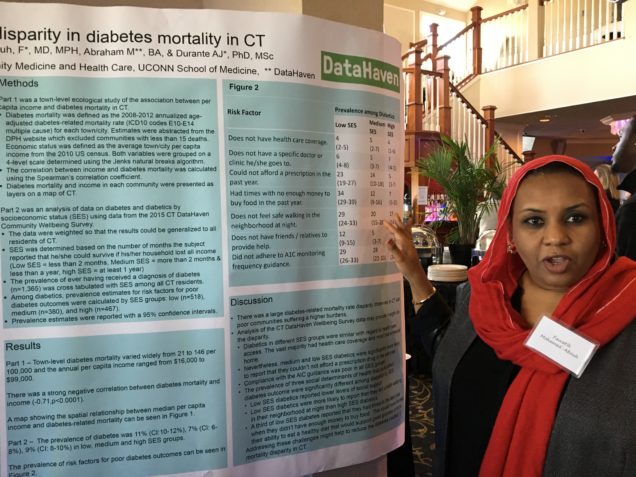Public Health 3.0 Comes Alive for this Connecticut Student
A data dive shows the relationship between diabetes mortality and community wealth
“This journey works for students like me because after you learn all of the skills and knowledge from the courses you take in graduate school you need to practice that immediately.” – Fawatih Mohamed-Abou
The cutting-edge approaches of Public Health 3.0 are built on understanding and addressing the social determinants of health. Fawatih Mohamed-Abou joined a research team that was doing exactly that: using advanced database and mapping techniques to find the correlation between diabetes mortality and the wealth of the community. The statistical analysis let Mohamed-Abou apply skills she’d learned in the classroom, she reports, but the mapping was new. Collaborating with experts in a real-world project was a great way to learn the techniques, she says. And the results of the study were striking: Statewide, diabetics in lower-wealth communities in Connecticut face many challenges that were not seen in higher-wealth areas, from access to food at regular intervals to lack of money for medication to lack of a specific doctor or medical team, leading to a strong correlation between diabetes mortality and income.
NEPHTC is delighted that we can support students like Fawatih in our public health graduate student field placement program.
